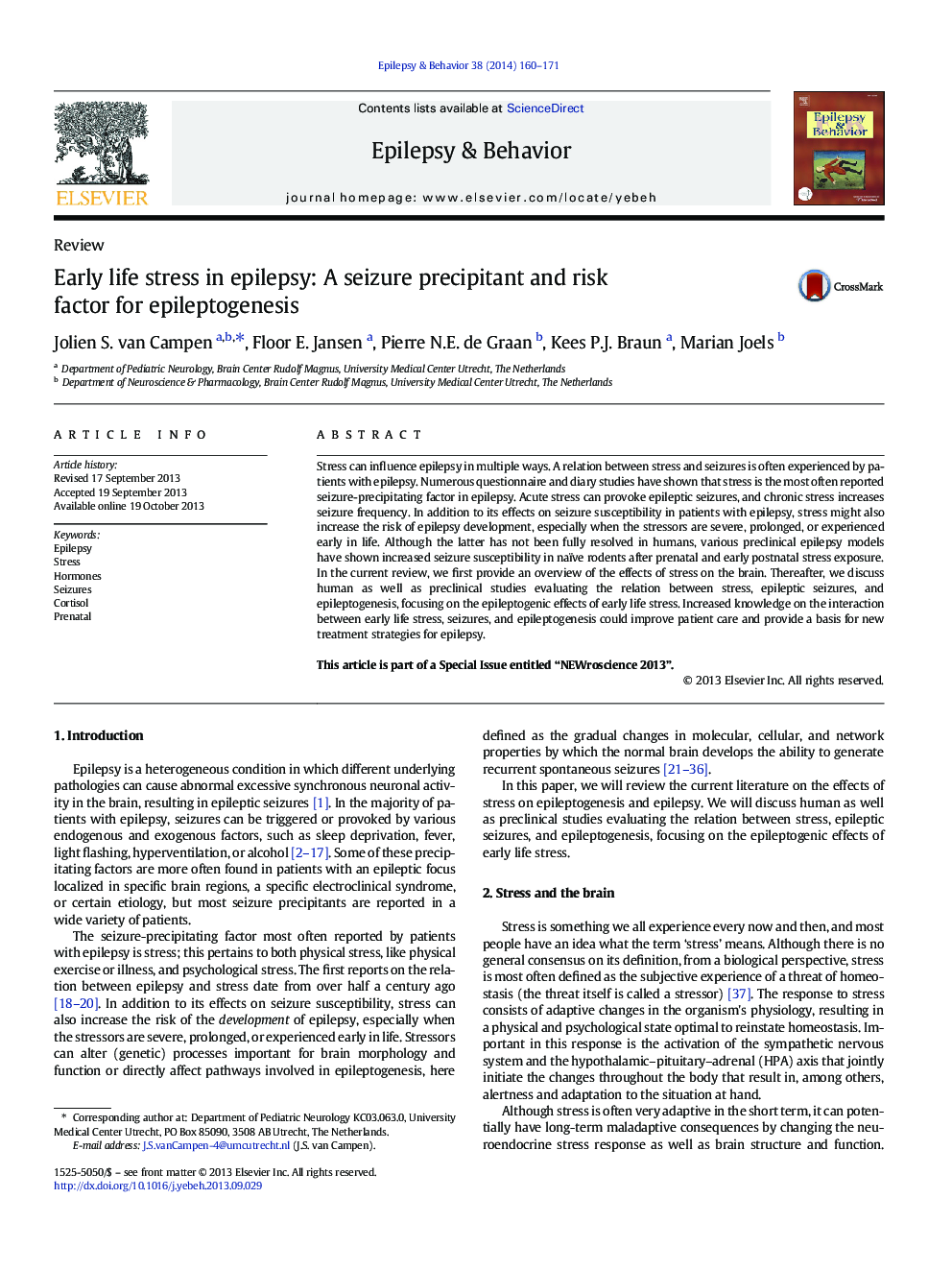| Article ID | Journal | Published Year | Pages | File Type |
|---|---|---|---|---|
| 6011905 | Epilepsy & Behavior | 2014 | 12 Pages |
â¢Stress is the most often reported seizure-precipitating factor in epilepsy.â¢Early life stress increases seizure susceptibility in naïve rodents.â¢Effects of stress on epileptogenesis and epilepsy incidence are largely unresolved.â¢More knowledge on stress and epilepsy could improve patient care and treatment.
Stress can influence epilepsy in multiple ways. A relation between stress and seizures is often experienced by patients with epilepsy. Numerous questionnaire and diary studies have shown that stress is the most often reported seizure-precipitating factor in epilepsy. Acute stress can provoke epileptic seizures, and chronic stress increases seizure frequency. In addition to its effects on seizure susceptibility in patients with epilepsy, stress might also increase the risk of epilepsy development, especially when the stressors are severe, prolonged, or experienced early in life. Although the latter has not been fully resolved in humans, various preclinical epilepsy models have shown increased seizure susceptibility in naïve rodents after prenatal and early postnatal stress exposure.In the current review, we first provide an overview of the effects of stress on the brain. Thereafter, we discuss human as well as preclinical studies evaluating the relation between stress, epileptic seizures, and epileptogenesis, focusing on the epileptogenic effects of early life stress. Increased knowledge on the interaction between early life stress, seizures, and epileptogenesis could improve patient care and provide a basis for new treatment strategies for epilepsy.This article is part of a Special Issue entitled “NEWroscience 2013”.
